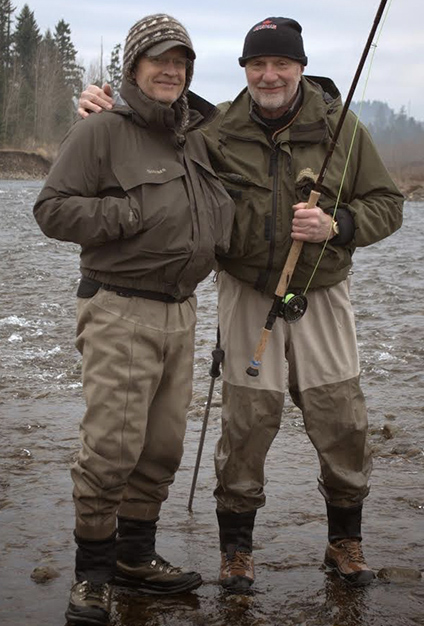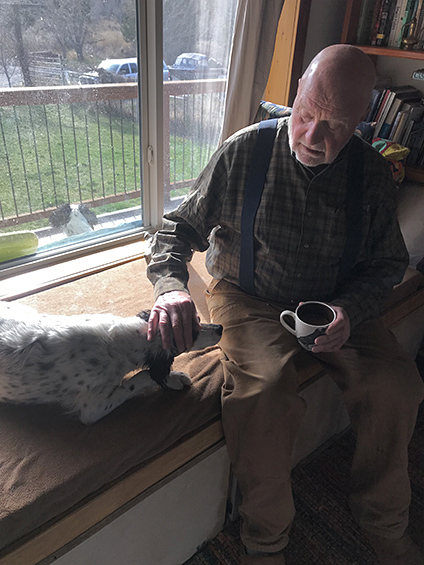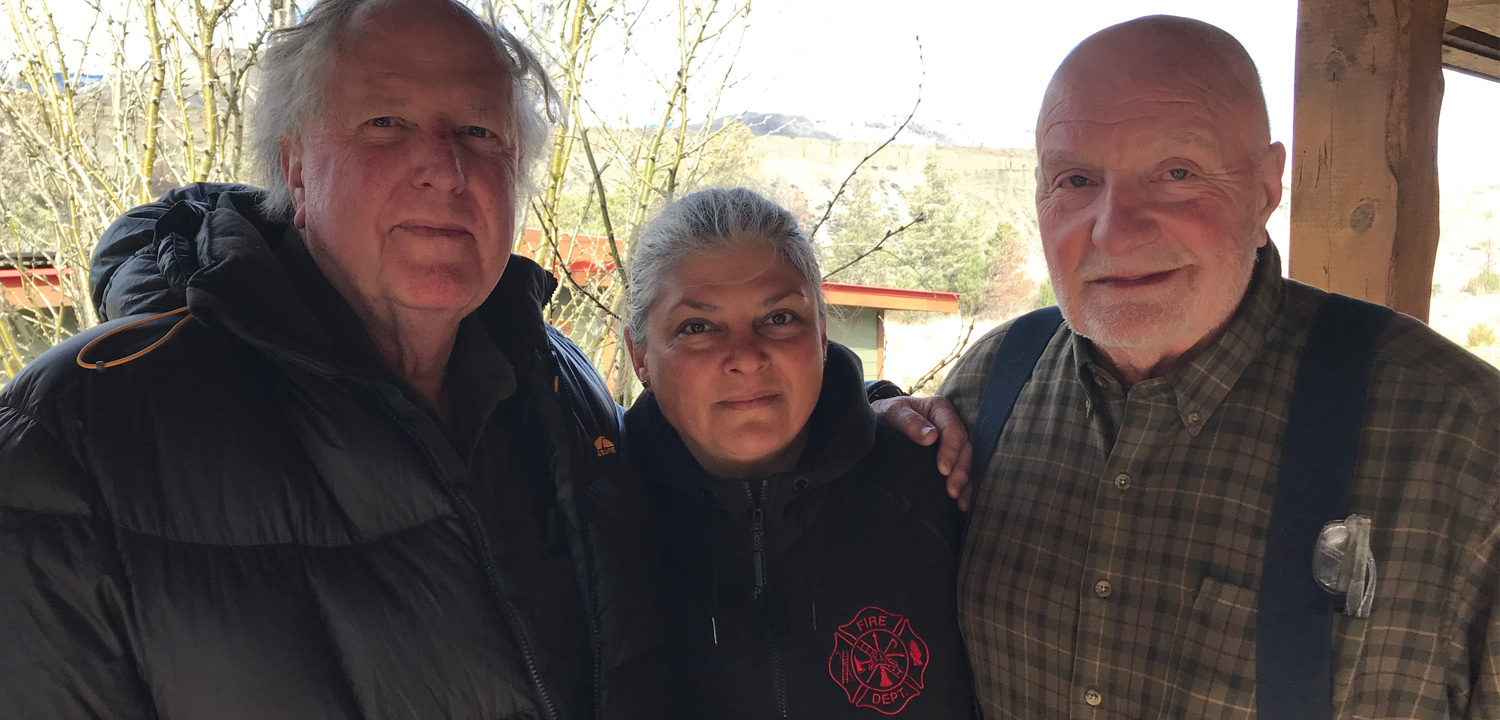The Wild Salmon Center director was a gentleman angler, author, and avid salmon conservationist.

Ehor Boyanowsky was a gentleman angler. A “bon vivant.” A criminology professor who loved hunting, English setters, and a bottle of good scotch.
Above all, says Wild Salmon Center founder Pete Soverel (pictured above left, with Boyanowsky’s wife Cristina Martini, center, and Boyanowsky, far right), he was a steelheader with a passion for conservation.
“Ehor’s legacy was in forging and shaping the direction of Wild Salmon Center,” Soverel says. “He was a lifelong fly fisher who supported a holistic approach to salmon conservation.”
Boyanowsky, a longtime WSC board member, passed away in September 2024 at the age of 81. The child of Ukrainian immigrants, Boyanowsky was born in Toronto and largely raised in Ontario. It was only in adulthood, when he moved west to British Columbia to teach social psychology at Simon Fraser University, that he learned to fly fish—and fell in love with steelhead. He served as President of the Steelhead Society of British Columbia and other regional fishing organizations. In 1993, he joined the board of Wild Salmon Center, where he served as director until 2006.
“Ehor was a scholar, a writer of nonfiction, and profoundly dedicated to our work to protect wild fish and wild rivers,” says WSC President & CEO Guido Rahr. “He had an incredible sense of humor, and could successfully make the case for salmon conservation with a wide range of people.”
“Ehor’s legacy was in forging and shaping the direction of Wild Salmon Center. He was a lifelong fly fisher who supported a holistic approach to salmon conservation.”
Pete Soverel, Wild Salmon Center founder
Over his lifetime, Boyanowsky built a powerful network of friends that included the poet Ted Hughes, about whom Boyanowsky wrote the book Savage Gods, as well as the grandson of Leo Tolstoy, and Jack Hemingway, son of Ernest.
Boyanowsky tapped these social connections to extend his advocacy work for salmonids. He didn’t hold back, Soverel says, noting that Boyanowsky was unequivocal in his opposition to salmon hatcheries and highly critical of unconstrained commercial fisheries.

Boyanowsky also took the time to sit with the natural world, and marvel in its gifts. For decades, Soverel remembers, he’d visit Boyanowsky at his family ranch on the banks of the Thompson River, where the two would sip Macallan scotch, pet the dogs, and talk fish.
“He devoted much of his life and conservation work to those goals,” Soverel says. “He shared our vision. That’s why he served on our board for a decade or so. And it’s why we were friends for more than 30 years.”
On Boyanowsky’s passing this fall, the Vancouver Sun printed a moving tribute. We will miss him, and work diligently to honor his legacy in Pacific salmon conservation.
“Ehor was a scholar, a writer of nonfiction, and profoundly dedicated to our work to protect wild fish and wild rivers. He had an incredible sense of humor, and could successfully make the case for salmon conservation with a wide range of people.”
Guido Rahr, Wild Salmon Center President & CEO
